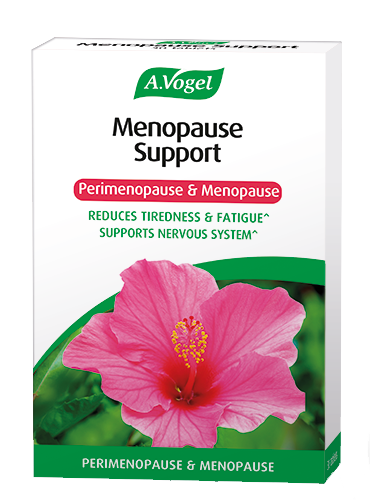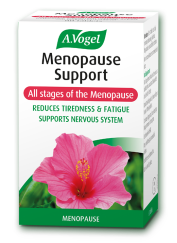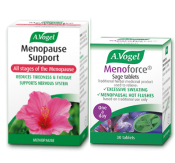Today's topic
Today, I'm going to be going into more detail about skin conditions in the menopause.
Other skin problems you might experience during menopause
Now, a few weeks ago I spoke about three of the more common problems that are associated with the skin in the menopause. But, I thought this time that I would have a look at ones that are slightly more surprising and ones that you might not even realise are connected to the menopause. 
1. Acne
So the first one we're looking at is acne. It's amazing how many women come to me and say, "I'm getting teenage acne all over again. What on earth is going on here?"
One of the things we know that can happen is the liver can get stressed in the menopause. There's a big link between the way the liver detoxes and our skin; but, also in the menopause, our digestion and elimination gets affected and, very often, everything starts to slow down. We get a bit constipated or a bit bloated, or we get sluggish bowels, and that will affect the skin as well.
So, a combination of poor liver function and poor bowel function can result in you getting acne spots and all kinds of horrible, itchy spots.
2. Skin conditions getting worse
Your symptoms can get worse. So, if you've already got a skin condition such as eczema, or psoriasis, or acne rosacea, then you might find that these conditions flare up a lot more, or they tend to get worse as you go through the menopause.
In this situation, again, it's exactly the same as the previous one. Your liver is going to be more stressed. There's going to be more hormonal fluctuations going on, and again, that can affect the stability of our skin.
You can even become more prone to getting these conditions if you've never had them before, but also if you have them, then they tend to just get that little bit worse.
3. Skin discolouration / skin pigment change
We can also start to get discolouration of the skin in certain places. I know for me it tends to be the hands. You start getting liver spots, or you might find that you get a lot frecklier when you go out into the sun.
4. Sensitive skin & rashes
Your skin may feel more sensitive and the reason for this is that your skin can become thinner. You can lose that little extra buffering layer of the skin and, when that happens, your skin gets thinner and it gets more prone to irritation.
So, this could be caused by anything. It could be the clothes that you're wearing. Some people may find that they can't wear woollen jumpers anymore because they start to make their skin really itchy. You might find that when you go out into the sun, you just go red, or you go blotchy, or you end up with prickly heat.
You might find that you are much more prone to rashes and, also, you can become much more sensitive to temperature changes. You can suddenly find that you're getting these pins and needles, or heat, or cold bumps on your skin just when you maybe go from inside to outside during the summer or vice versa in the winter as well.
5. Sunburn
Because your skin is thinner, you may have more problems with the sun, generally. So, if you've been someone who's been used to doing a lot of sunbathing, you might find, again, that you burn much more rapidly even though you're taking the same precautions with your suncreams as you have always done. And again, it's just due to the thinning skin which may react more quickly to sunlight.
6. Slow healing wounds
One of the other things that can happen is that wounds can take longer to heal. You might find that if you cut yourself or bump yourself, it takes a lot longer for things to resolve.
My top skin-care tips
So, what can you do about looking after your skin? Here are my top tips for helping to protect your skin that little bit better during menopause.
Drink plenty of water
Number one is water. This is really important, especially if your skin's thinning, or if it's getting more sensitive. So, remember to put that one in, right up there at the very top.
Sensitive skin products
You need to look at your skincare products. I mentioned this one in the last article I did on skin. It's not just about face creams or what you're putting on at night, but it's what you're using all through the day.
So, look at much more natural soaps, gels, shampoos and conditioners. Look at the whole range of skincare products that you use. If your skin gets really itchy, then it may be you need to look at your washing powder and your fabric conditioner, and go for one of the organic ones, or I know you can get a range for babies that are good for really, really good sensitive skin, so you can certainly look into that one there.
A healthy diet
This is really important – look at your diet! You need lots of good healthy oils in the menopause, so you're looking at your omega-3s and your omega-7s. Your omega-3s are your fish oils. If you are vegetarian or vegan, you can go for flaxseed oil.
Sea Buckthorn oil
You can look at sea buckthorn oil if your skin tends to get dry. If you suffer from issues like eczema or psoriasis, then a sea buckthorn oil supplement would probably be worth investing in.
Vitamins for healthy skin
Vitamin E is so important, not only for helping the skin to keep wrinkles at bay, but also at keeping your skin nice and elastic which is a really important thing here.
And also look at zinc. Zinc is very important for skin, especially when it comes to wound healing. Your hormones also need plenty of zinc and, sometimes, you can become a little deplete in the menopause with all of the changes going on. So, again, taking a 15 milligram zinc supplement on a daily basis can work for a whole range of issues during the menopause.
Don’t forget your suncream
If you are going out into the sun, then definitely look at your suncream. The problem is with the conventional ones, there are loads of chemicals in them. And, if your skin is getting more sensitive, you might find that you're reacting to them. So, you need to look at some of the more natural skincare products.
The only thing here is we have a little bit of a dilemma. Vitamin D is vital in the menopause for our mood, for our bones, for all sorts of things, and, if you put suncream on before you go out in the sun, you are possibly blocking the production of vitamin D in the skin.
So, it's quite important to get a little bit of light on the skin before you start to put your suncream on. But you'll probably have to try and gauge that.
I know myself, I do a lot of gardening, so I get plenty of sunshine in the summer. So, I will go out quite early in the morning for maybe an hour or two, without putting any suncream on, and then, once it gets to the middle of the day, that's when I will just start to protect myself, especially on the areas that I know will burn if I don't do anything at all.
Balance your hormones
You can balance the hormones. Again, falling oestrogen will have an impact on all of this, so, if it's appropriate, you could look at our Menopause Support.
A.Vogel Menopause Support | For Perimenopause, Menopause & Postmenopause Symptoms
£8.99 (30 tabs) In Stock
Skin creams
You can also look at our range of creams. We've got a nice range of quite inexpensive creams that can work really well during the menopause.
My favourites are the Comfrey Cream. Comfrey helps to strengthen the skin, so it's very good for the connective tissue. I find it great for my nails, so I'll always apply that, especially last thing before I go to bed, to give my nails a nice little massage.
I also find it’s a nice one if you tend to get rough heels during the winter. So that gets applied every night before going to bed as well. It's a good one for the face just to keep the skin and the face nice and firm, too.
We have Neem Cream. This is a lovely one for the itchy, irritated or sensitive skin. It's anti-inflammatory and it's very, very soothing. I know I always carry a little pot with me wherever I go, just in case I start to get itchy skin anywhere.
If you're getting spots, then we have our Echinacea Cream which is a nice healing cream. And, if your skin is really, really dry, then we have the Bioforce Cream which is a really super-duper moisturising cream.
Strengthen your skin
And if you want to sort of strengthen the skin, you can look at hyaluronic acid supplements as well, which you can get from your local health food shop.
So, there are a lot of things you can do just to prepare your skin for the menopause, for those of you that are in the peri-menopause or are just approaching. So remember, diet is really important to help keep your skin stable but there are also a lot of other things you can do to support it during the menopause as well.
If any of you out there have got any really good tips that you find helpful for the skin, then please share them with us.










